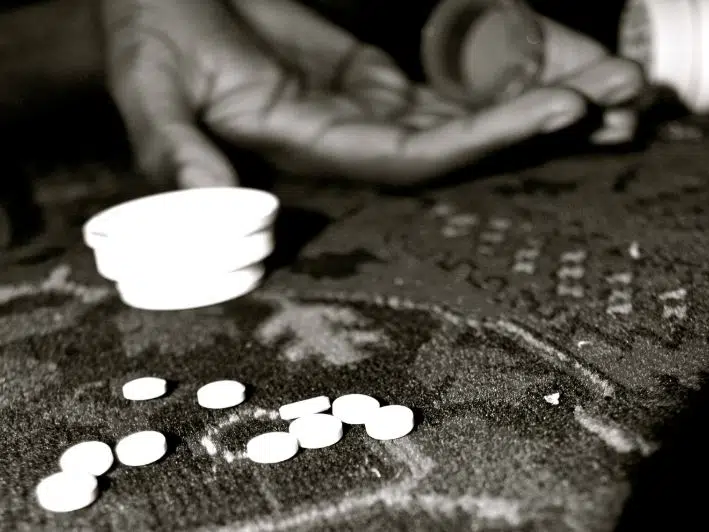
New data from the BC Coroners Service shows there were a record 2,224 British Columbians who died of an overdose last year.
It is a 26 per cent from the previous record of 1,767 overdose deaths in 2020.
The Coroners say there were another 210 and 215 people who lost their lives in the province in November and December respectively, making it the worst two months ever on record.
On average, about seven people lost their life to an overdose in November and December last year, more than the yearly average of 6.1 deaths per day. Data shows that 71 per cent of people who died with between the age of 30 and 59, with 78 per cent of victims being men.
While October 2021’s data was adjusted to reflect 199 deaths instead of the previously reported 201, it remains the third worst month on record.
“In the past seven years, the rate of death due to illicit drug toxicity in our province has risen more than 400 per cent. Drug toxicity is now second only to cancers in B.C. for potential years of life lost,” Chief Coroner Lisa Lapointe said.
“We cannot simply hope that things will improve. It is long past time to end the chaos and devastation in our communities resulting from the flourishing illicit drug market, and to ensure, on an urgent basis, access across the province to a safe, reliable regulated drug supply.”
In Kamloops, there were a record 77 overdose deaths last year, with 17 more people losing their lives in the last two months of 2021. The City was expected to set a new record, as it matched the 2020 record of 60 deaths in October.
The Coroners say fentanyl was detected in about 83 per cent of overdose deaths this year, similar to the 85 per cent in 2020. They say the 2021 data is expected to change as further toxicology results are received.
Extreme fentanyl concentrations were detected in about 15 per cent of deaths between April 2020 and Dec. 2021, while, carfentanil was present in 187 test results, almost triple the 66 recorded in 2020.
Lapointe also says 50 per cent of samples in December tested positive for etizolam, more than three times the 15 per cent rate of detection in July 2020.
“We need decision-makers at all levels to recognize and respond to this public health emergency with the level of urgency it demands,” Lapointe said.
“The reality is this: every day we wait to act, six more people will die. COVID-19 has shown what is possible when governments act decisively to save lives. And in order to save lives in this public-heath emergency, we need to provide people with access to the substances they need, where and when they need them. Time has run out for research and discussion. It is time to take action.”
You’ll find the latest statistics from the BC Coroners Service here.














